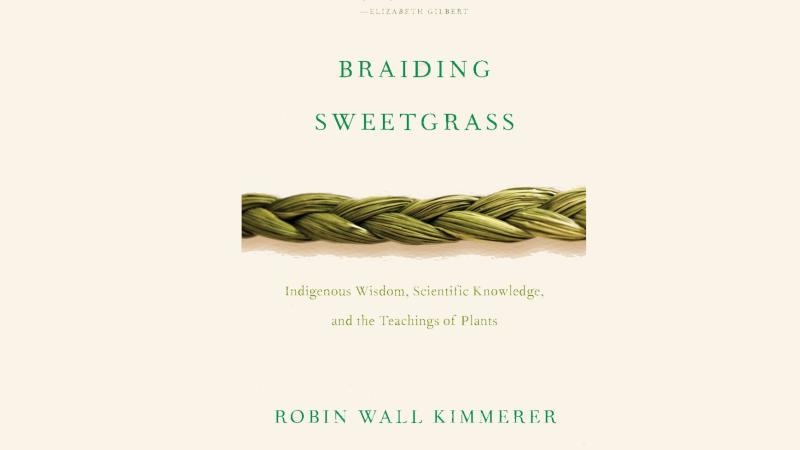“Braiding Sweetgrass” embraces connection between humans and the natural world
August 27, 2021

Braiding Sweetgrass: Indigenous Wisdom, Scientific Knowledge, and the Teaching of Plants by Robin Wall Kimmerer will be the Community Read for the upcoming academic year at Rensselaer Polytechnic Institute.
The New York Times best-selling nonfiction book is a series of essays that uses botany to explore the ties between indigenous traditions and Western science. Kirkus Reviews calls Braiding Sweetgrass, “A smart, subtle overlay of different systems of thought that together teach us to be better citizens of Earth.”
In the book, Kimmerer arrives at a central conclusion: “that the awakening of a wider ecological consciousness requires the acknowledgement and celebration of our reciprocal relationship with the rest of the living world,” which is a compelling fit for the theme of exploration set by Rensselaer President Shirley Ann Jackson for the coming academic year — “Grand Challenges of Humanity… Opportunity in Disruption.”
Established in 2015, the Community Read program provides a common intellectual experience for all incoming Rensselaer students. The program brings students, faculty, and staff together throughout the year to engage in discussions centered on one common book about issues of global concern, epitomizing The New Polytechnic — the interdisciplinary model for education and research at Rensselaer.
Braiding Sweetgrass will be incorporated into several of the HASS Inquiry courses during the 2021-2022 academic year, said Susan Smith, a lecturer in the school of Humanities, Arts, and Social Sciences (HASS) and faculty coordinator of the HASS Inquiry program that facilitates discussions for first-year students in all schools.
“The book is a perfect example of the relevance of incorporating multiple perspectives in our academic endeavors and, indeed, in STEM fields,” Smith said. “This multiperspectival approach is one of the fundamental learning objectives of HASS Inquiry courses.”
The book was selected in part by students in a summer Community Read Seminar taught by Skye Anicca, a lecturer in the Department of Communication and Media at Rensselaer. Participants set goals for what the Community Read program should accomplish, including giving students an opportunity to develop skills in textual analysis, academic discussion, and reading comprehension, while also fostering interdisciplinary connections among various areas of study at Rensselaer. Students then read five books in six weeks and wrote reviews and opinions on each, to narrow the choices for the faculty’s final decision.
“The myths we tell and what we believe about our origins have everything to do with the technology we create,” Anicca said. “The book the students chose clarifies the connection between storytelling and science, which sends an important message about the importance of literary studies at Rensselaer.”
Kimmerer is a member of the Citizen Potawatomi Nation. She is also a Distinguished Teaching Professor of Environmental Biology at the State University of New York and the founder and director of the Center for Native Peoples and the Environment, whose mission is to create programs that draw on the wisdom of both indigenous and scientific knowledge for our shared goals of sustainability. Her first book, Gathering Moss: A Natural and Cultural History of Mosses, was awarded the John Burroughs Medal for outstanding nature writing.